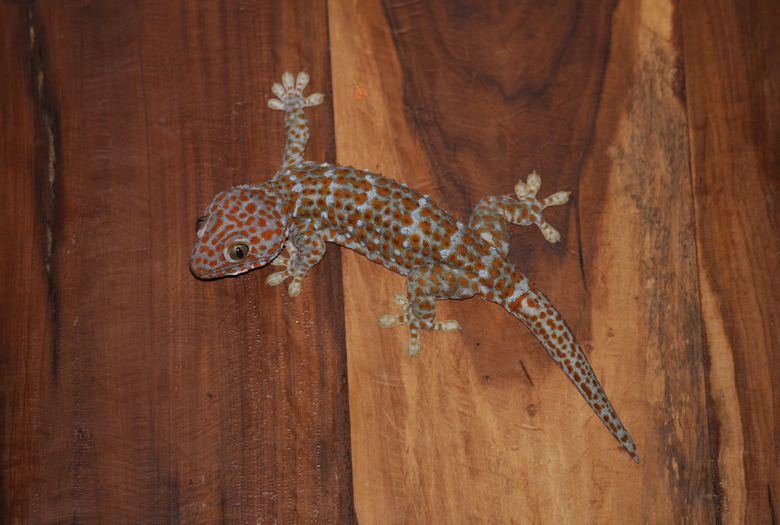What Kinds Of Fruit Do Geckos Eat?
Geckos are considered one of the best lizards for kids, but not all geckos eat the same diets. Certain breeds of geckos eat fruit and these are called Frugivorous. Frugivorous geckos — those who consume fruit — often enjoy fruits such as grapes, apples, and apricots. Fruit eating species include crested geckos, gargoyle geckos, chahoua geckos, leachianus, mourning geckos, and day geckos.
However, you must prepare them so your geckos can easily consume them, because geckos lack the jaw strength and dentition to bite such substantial foods. Because some fruits have poor nutritional profiles and can cause your lizard to fall ill, select fruits carefully and coordinate your pet's diet with your reptile veterinarian's recommendations.
Fruit-eating geckos
Fruit-eating geckos
While crested geckos (Rhacodactylus ciliatus), day geckos (Phelsuma spp.) and a handful of other species consume fruit, many other commonly kept species, such as leopard geckos (Eublepharis macularius) and African fat-tailed geckos (Hemitheconyx caudicinctus), are largely or entirely insectivorous. Regardless of what species you keep, always consult your veterinarian before making any significant changes to his diet.
The following fruits are acceptable for most frugivorous geckos:
- Berries such as raspberries, blackberries, and blueberries.
- Tropical fruits such as papaya, figs, and pineapples.
- Pitted fruits such as pears, apples, and cherries (do not offer the pits to your pet).
- Other fruits, including grapes, persimmons and melons.
Calcium-to-phosphorus ratio
Calcium-to-phosphorus ratio
The ratio of calcium-to-phosphorus in foods can affect your lizard's health. Ideally, your gecko's food should have twice as much calcium as it does phosphorus. Papaya, figs, and raspberries have excellent calcium-to-phosphorus ratios, so they are preferred by most geckos. Fruits with a high calcium-to-potassium ratio can be fed more often than fruits with a low calcium-to-potassium ratio.
For example, although geckos might enjoy banana, peach, nectarine or cantaloupe, and although these foods are nontoxic, they have very poor calcium-to-phosphorus ratios. Feed these fruits in moderation, if at all. Any fruit should be considered treats, and not a primary part of the gecko's diet. Do not give geckos citrus fruit; citrus fruit contains oxalic acid which interferes with the absorption of calcium essential to gecko health.
Offering all geckos fruit
Offering all geckos fruit
Always wash all fruit before offering it to your pet, to remove as much bacteria and pesticide residue as possible. Then separate out any inedible or toxic parts, such as the seeds and pits of squash, apples, peaches, cherries, apricots, and pears. You must prepare the fruit in such a way that your pet will be able to eat it. The best approach is to place the fruit in a food processor and puree it until it is the consistency of baby food — which some keepers offer instead of fruit. This will make it easy for your gecko to lap up the food with his tongue.
If you do not have access to a food processor, just cut the food into very tiny bits with a sharp knife or shred it with a grater. In such cases, be sure that the individual food items are soft and are no longer in any dimension than the distance between your geckos' eyes. It is especially important to offer suitably small food to young geckos.
